founders’ vision
A trust layer was needed
Dr. Leemon Baird and Mance Harmon founded Hedera with the belief that the world would be better if networks were more connected and less centralized. However, these networks or ‘shared worlds’ needed trusted technology that simply did not exist. Their quest for a trust layer is where the Hedera story began and it has only just begun.
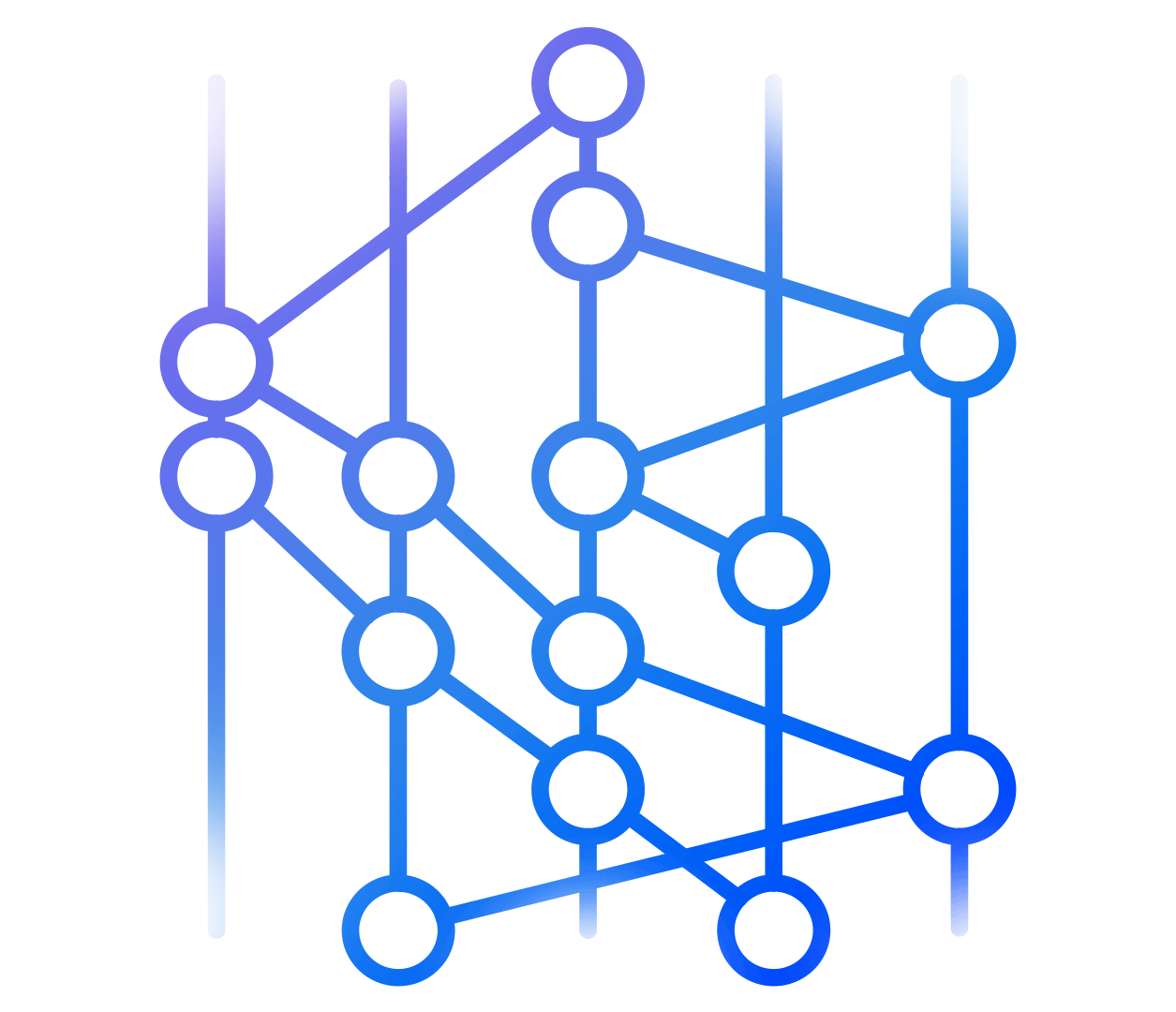
A passion to make trusted technology that was ‘built to last’
As Air Force veterans, Leemon and Mance founded Hedera in the United States with a mission to accelerate American innovation.
After Leemon invented the ground-breaking hashgraph technology, Mance introduced a novel governance model for institutional public network management. With a unique combination of powerful technology and governance, Hedera was designed from the start to power enterprise applications that are compliant, performant and built to last.
Today, the Hedera network sits at the center of a thriving ecosystem with a robust technology stack, powering hundreds of real-world solutions across both enterprise and DeFi.
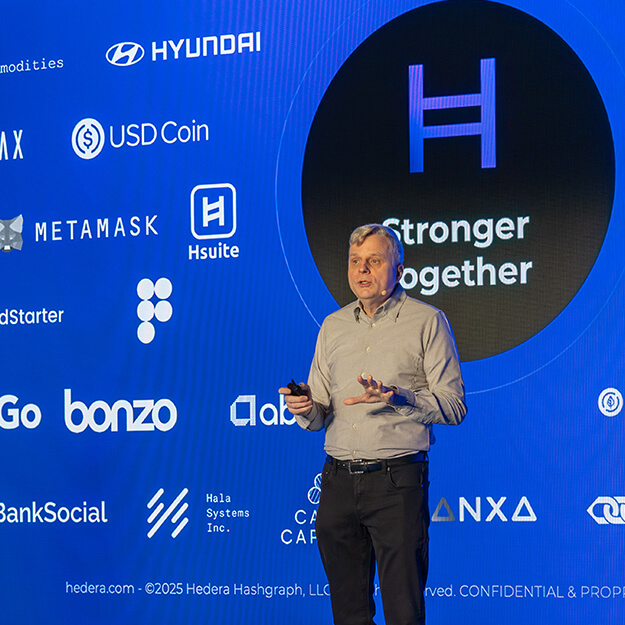

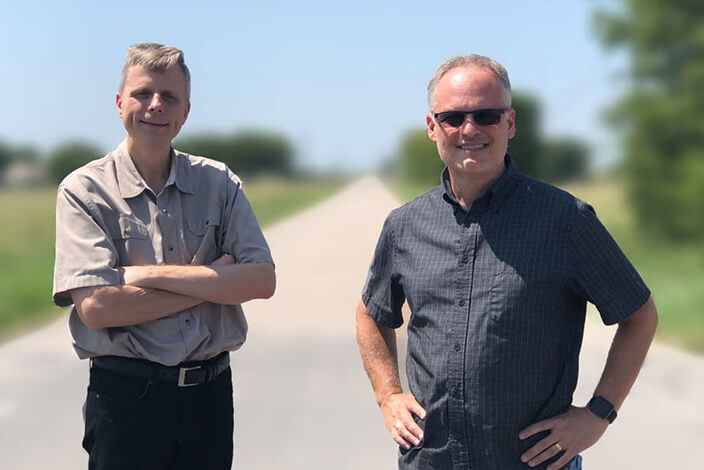
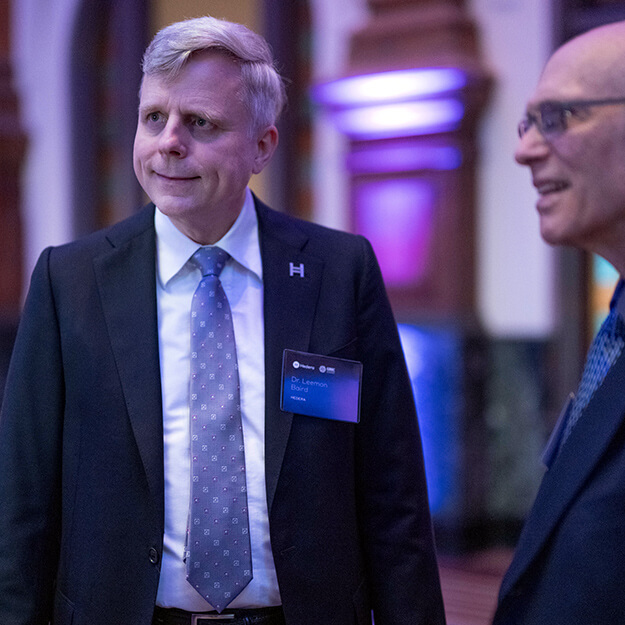
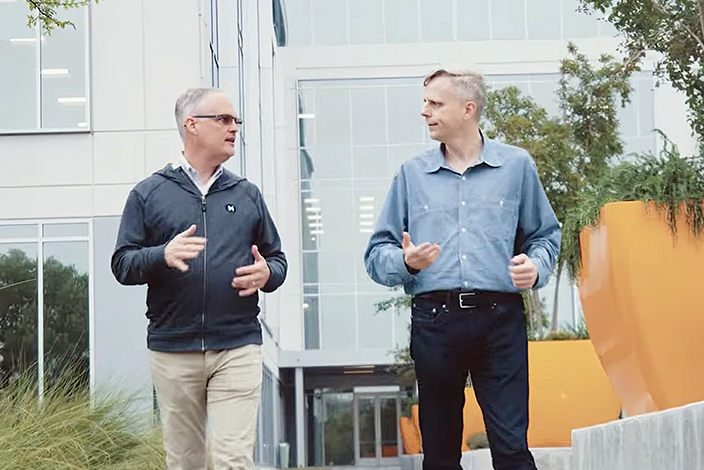
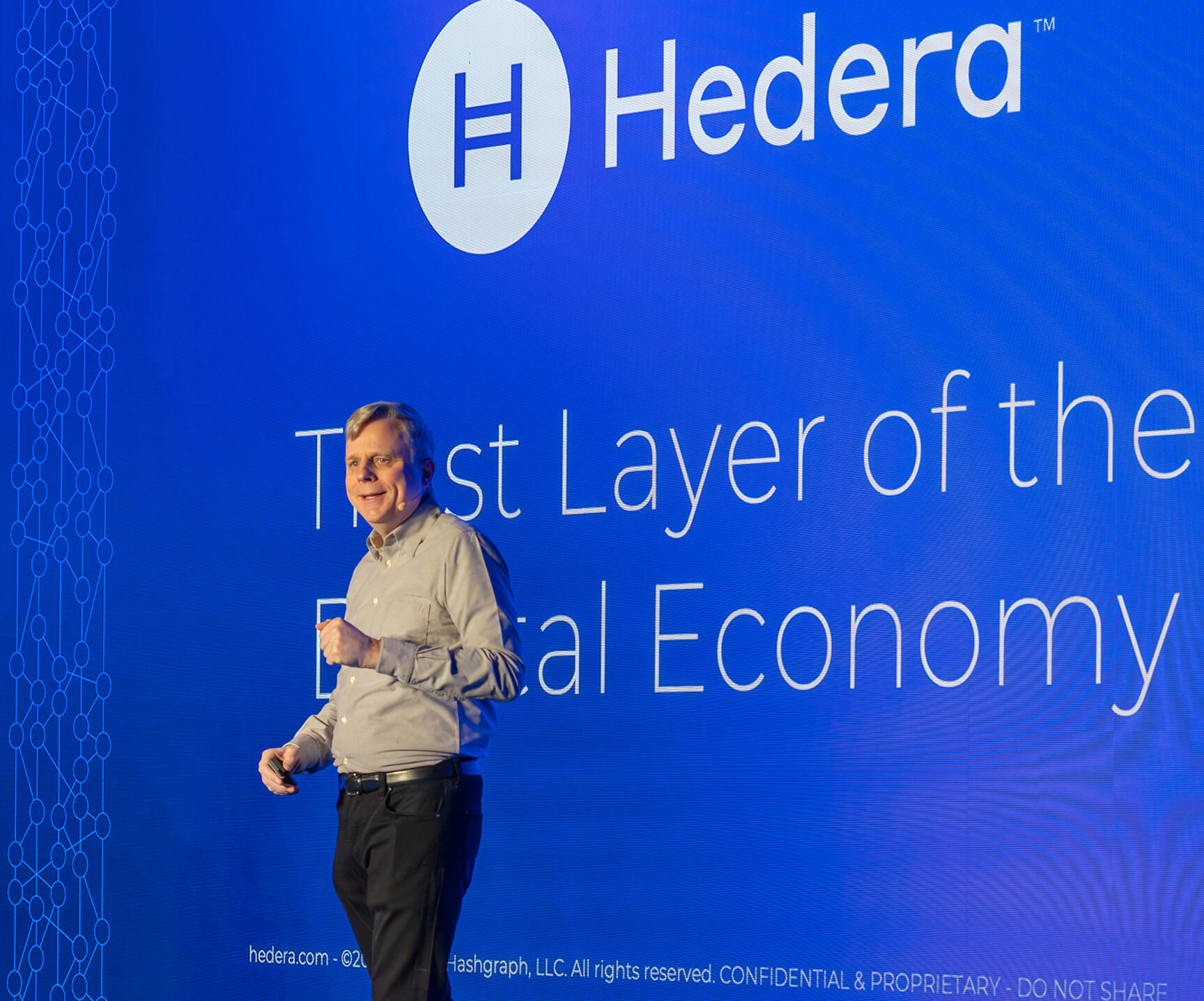
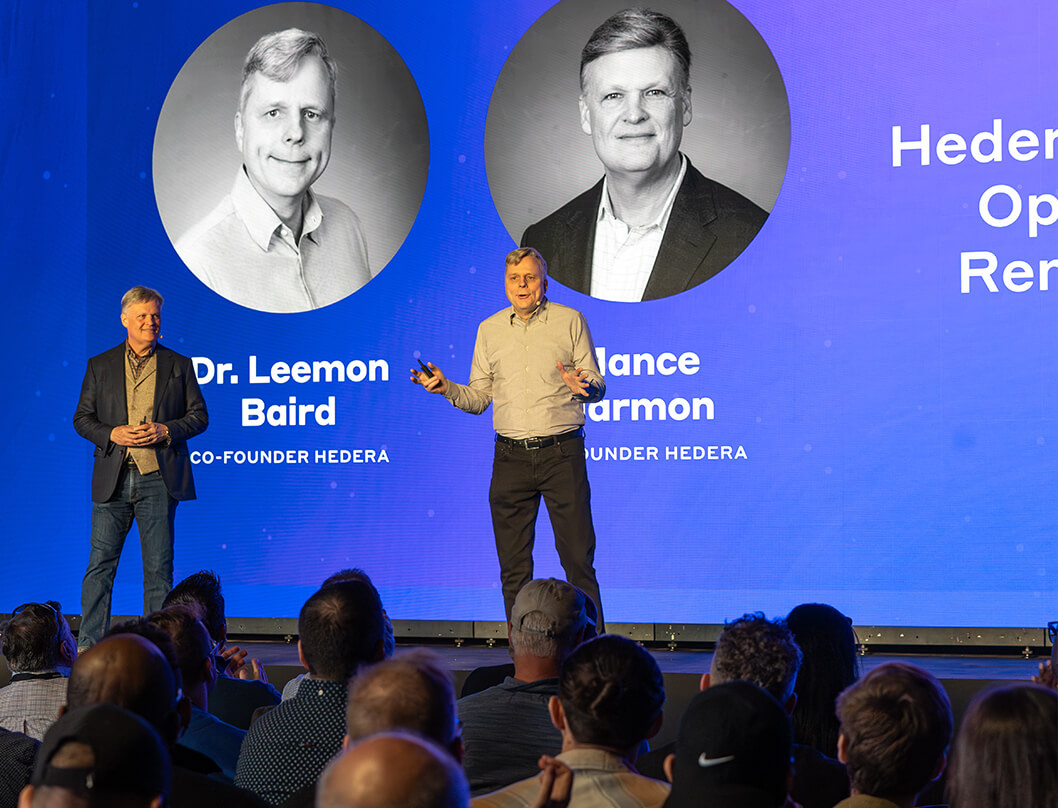
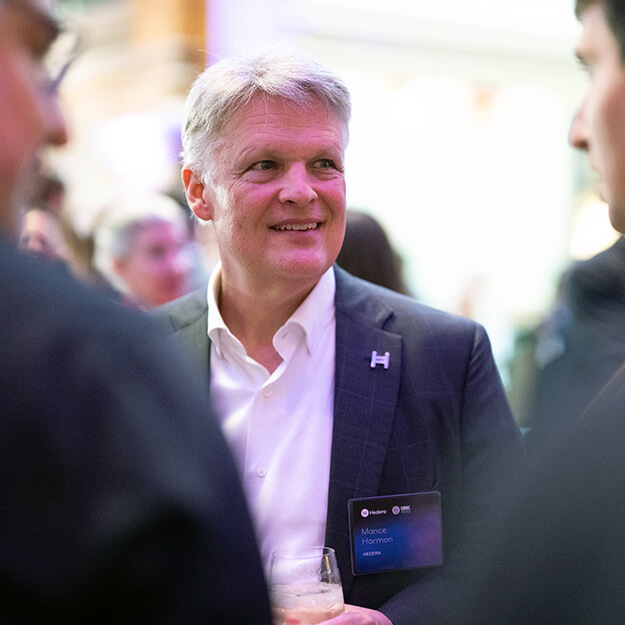

From the beginning, our vision has been simple: everyone should be able to claim their own piece of cyberspace, build a shared world, invite others in, collaborate, and connect with countless others doing the same. Hedera began as a foundation, but the journey extends far beyond it. We are now realizing that original vision, creating shared worlds that span both private and public networks, seamlessly connected. ‘Shared worlds’ has always been our theme, and today, it is coming fully to life.
Dr. Leemon Baird
Co-founder
Our intent is to build a 100-year company. We’re not in this for the short term. We’re building the next generation of infrastructure that will be here for the next century.
Mance Harmon
Co-founder

hedera milestones
How the story unfolded
Trust has been a guiding principle for Hedera since Day One.

2012–2015
Invention of hashgraph
Leemon develops the breakthrough innovation now called hashgraph, and knows it has the potential to be revolutionary.
A few months later, he and his longtime friend and business partner, Mance Harmon, form Swirlds, Inc. to develop proofs of content and battle test it for enterprise use.
The Hashgraph whitepaper is published on May 31, 2016.
2017
Formation of Hedera
Swirlds raises its seed investment round. Funds from that financing are used to bootstrap the formation of Hedera.
During this period, Leemon and Mance develop the main governance philosophy, conceptualizing the structure and role of the Council and its governing members.
Hashgraph technology is displayed publicly to the world for the first time at TechCrunch Disrupt in San Francisco, CA. Letters of Intent are signed by potential Council members.
2018
“Hedera” is selected as the brand and company name, and the HBAR logo is designed. Additional Letters of Intent are signed by potential Council members.
Hedera launch event is held on March 13, 2018 in NYC, drawing 1,000 people live and more than 100,000 livestream viewers. The event unveils Leemon and Mance’s vision for a public network – a network to be built on the patented hashgraph algorithm, governed by a Council of up to 39 global enterprises, and guaranteed not to fork. The Hedera white paper is published.
Hedera mainnet goes live on August 24, 2018. 50 billion HBARs are minted. The first meeting of potential Council members is convened to review the Hedera LLC Agreement and details of Council membership.
Hedera launches mainnet early access and phase one community testing programs commence, giving developers and users the ability to test the network for the first time.
2019
Formation of Governing Council
The first Council members (Deutsche Telekom, DLA Piper, Magazine Luiza, Nomura Holdings, Inc., and Swisscom Blockchain) are announced, and the inaugural Council meeting happens in Seoul, Korea, alongside the first Hedera Annual Assembly.
Additional Council members sign the LLC Agreement and the second Council meeting happens in New York City. Boeing, FIS (Worldpay), IBM, and Tata Communications are announced as Council members.
Technology achievements
Hedera’s Mirror Node software enters alpha on August 29, 2019, providing a way to store and cost-effectively query historical data from the public ledger, while minimizing the use of Hedera network resources.
The Hedera mainnet is made openly accessible on September 16, 2019.
2020
Google and Wipro are announced as Council members, followed closely by Avery Dennison, University College London (UCL), LG Electronics, Zain Group, and Dentons.
Hedera Consensus Service (HCS) is launched on the mainnet on February 13, 2020.
Hedera surpasses Ethereum in the daily number of transactions processed.
The Hedera network services, including Hedera Consensus Service, enter open source under Apache 2.0 license on August 6, 2020.
Hedera Token Service (HTS) is launched on the testnet and the Tokenization on Hedera whitepaper is published on December 7, 2020.
2021
During this time period, numerous Council members are announced, including eftpos, Standard Bank Group, and Électricité de France (EDF), Shinhan Bank, Chainlink Labs, The London School of Economics and Political Science (LSE), the Indian Institute of Technology Madras (IITM), DBS Bank, and ServiceNow.
Hedera Token Service launches on the mainnet on February 9, 2021 with over 60 initial ecosystem partners.
Hedera reaches one billion (1,000,000,000) mainnet transactions in just one year, six months, and 28 days.
Hedera adopts environmental sustainability as a core value and officially commits to a carbon-negative network.
2022
Hedera Smart Contract Service is launched on the mainnet on February 2, 2022.
Ubisoft and abrdn are announced as Council members.
The hashgraph platform, including the hashgraph consensus algorithm, enters open source under Apache 2.0 license on August 5, 2022, making the entire Hedera network, including the services code and developer tools, open source.
2023
Dell Technologies and COFRA Holding are announced as Council members.
Stablecoin Studio launches enabling any organization to easily build stablecoin applications.
2024
Hitachi America, Mondelēz International, BitGo, and the Nairobi Securities Exchange (NSE) are announced as Council members.
Hedera contributes codebase to Linux Foundation Decentralized Trust, marking the first time a public chain has donated its code to an independent foundation.
Asset Tokenization Studio launches as an open-source toolkit for the configuration, issuance, and management of tokenized bonds and equities on-chain.
2025
A new era for Hedera with the rebrand of Hedera Council from Governing Council and HBAR Foundation to Hedera Foundation.
A new program to formally participate in Hedera Council launches–Strategic Partnerships and Community Partnerships.
featured video
The Hedera journey
With billions of real-world HBAR transactions, hundreds of applications building on an open-source platform, and an ever-growing Hedera Council of industry-leading enterprises responsible for governing the network, Hedera is setting new standards for web3.

